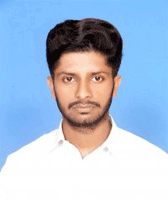Muhammad Waqas Abid
2010 Asia JusticeMakers Fellow, Pakistan

About Muhammad
Muhammad is passionate about improving the welfare and development of marginalized people in his community, especially women and children. Since childhood, he has worked to enhance his small community in Pakistan, continually expanding his scope and ambition. Muhammad graduated from the University of the Punjab with a degree in Sociology and Social Sciences in 2001. He has attended numerous professional training sessions related to NGO management and social reform and is currently pursuing a law degree at Bahaudin Zakariya University.
Muhammad has been a Human Rights Activist since he was a student. After graduating, he began working professionally with various NGOs, collaborating with local lawyers and members of the media to address human rights violations. He has implemented numerous projects, including initiatives focused on adult literacy for women, health and hygiene in rural areas, access to justice for women, and missing persons. For the past nine years, he has worked in the NGO sector, gaining extensive experience, a strong footing in the local community, and good relations with government departments. Muhammad established the Good Thinkers Organization, an NGO that unites human rights activists in Kasur, Pakistan.
Locating the Problem
In Kasur, a remote region in Punjab, Pakistan, approximately 15,000 people, including women and children, work as bonded laborers in about 150 brick kiln units. The financially and politically powerful owners and landlords exert great influence over the local police and administration. Workers are exploited and sometimes tortured, with women facing sexual abuse. Due to systemic corruption and a lack of legal knowledge, the workers have no recourse. Muhammad Waqas Abid has identified three key problems regarding the implementation of legal rights in Kasur: the lack of public awareness of legal rights among citizens and public officials, police misconduct and physical abuse during arrest, police interrogation, and/or arbitrary detention, and institutional corruption.
Innovation
Muhammad’s project addressed these issues by conducting 18 awareness-raising seminars that educated 683 workers—362 of whom were women—about their legal rights, especially concerning illegal arrest, police torture, and the right to a lawyer. Muhammad also established a Legal Support Center composed of volunteer lawyers, local NGOs, and journalists to provide legal support to victims, connecting these volunteers with potential clients. Additionally, a training and consultation session attended by 20 criminal justice stakeholders was organized to ensure that elected officials and government departments, including the police, had a greater understanding of detainees’ rights and the challenges associated with their implementation.